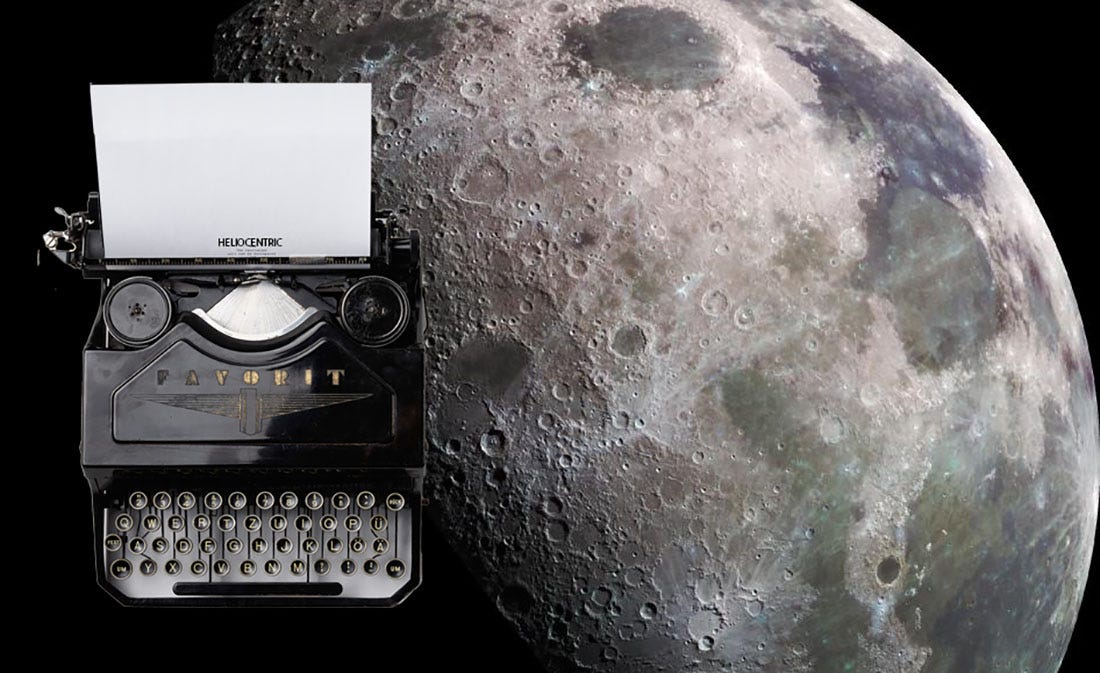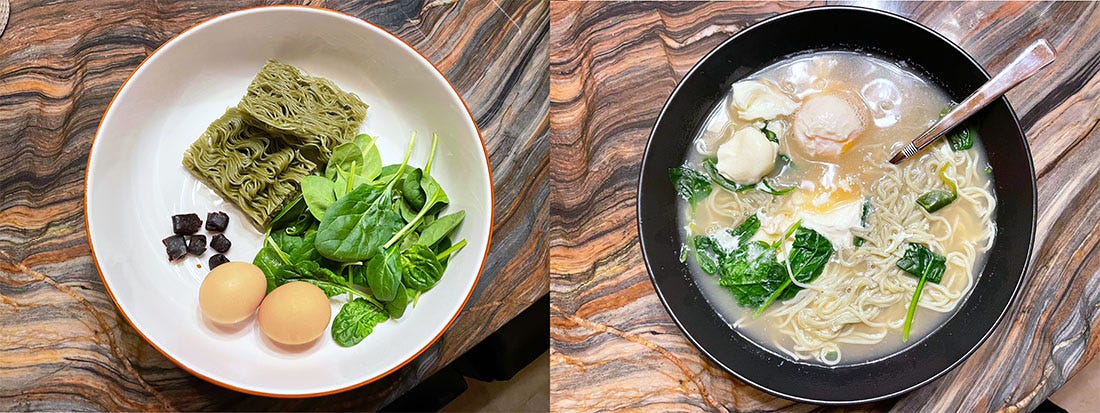
Today’s newsletter includes:
AI Ghostwriters?
Switching newsletter platforms
“Skyward” by Brandon Sanderson
Arbitrary Food Stuff
What you can expect in my newsletters: musings on things I'm thinking about, an occasional short story, links to articles I enjoyed, updates on writing projects, books I recommend, freebies and deals I hear about, news, upcoming events where I'll be, and more.
Newsletters go out mostly monthly, usually on Saturday.
AI Ghostwriters?
I'm not all that concerned about being replaced
A question I have been pondering for a long time is how Artificial Intelligence could learn to mimic human behavior. It’s one of the themes I explore in the Silvarian Trilogy. ChatGPT is demonstrating some pretty impressive skills and as people test it out and write about the results, they are finding it intimidating.
In one sense, it is daunting.
How much of what is written can be distinguished from some of the better results produced by AI? Should an artist think, what’s the point of creating art if an AI can duplicate my style and generate new things faster and easier than me? Could better textbooks be written by AI in a fraction of the time?
Whether it’s predicting the future or coming up with new plots or doing counseling—are humans losing their edge?
No. Not necessarily.
The people who have the most to lose are those who haven’t been original to begin with. There’s nothing wrong with that. So much of the communication we use in daily life is repetitious, built on what has been done before. If AI starts replacing a lot of this, is that a concern?
For those who have something within them, a story, a theory, a meaning, a feeling, AI could never capture what they would express.
Here’s my perspective.
—We humans will continue to be inventive thinkers, creating original content.
—We should continue to hone our skills in recognizing original work.
Critical thinking is and has always been an essential skill. There is no doubt that it will serve us as well in the future as it has in the past.
If an AI appears to come up with original thought, it should be considered plagiarism because it “learned” that thought from real people whose business it is to live by their creative output.
But hasn’t this always been the case? For every successful creator there have been imitators and pirates seeking ways to profit from the fruits of their labor and talent.
It didn’t start with Artificial Intelligence.

Switching Platforms
I’m switching newsletter platforms. I’ve been happy with Mailerlite but I’m spending more on it than an occasional poster like myself has any right to. Last year, I sent out five newsletters, and it cost me $185 because of their monthly fees (due to the size of my subscriber list). I have no ads, no affiliate links, and no financial income from these newsletters—in fact, I have intentionally looked for ways to keep my website and various posts free of ads. Trading mentions with other sci-fi authors is free, a simple courtesy.
Substack has both free and paid subscriptions. For now, I’m only sending out free newsletters. If I decide at some point to create a paid version, it would be added material, and I would still continue to send out my regular occasional newsletters without ads and without cost.
I have a strong aversion to opening an email and seeing some annoying, in-your-face ad about something I want nothing to do with. So I’m living by my principles here, giving away content to readers who share my interests. If I add a paid layer in the future, you will have the freedom to opt in or not, as you prefer.
No ads either way.
“Skyward” by Brandon Sanderson
If you haven’t discovered Brandon Sanderson yet, you’re in for a treat. “Skyward” is a first in a sci-fi series book about a 17-year-old girl, descended from some marooned humans on a distant planet. Her whole society has developed around surviving the threat posed by an alien race in orbit. Growing up in a slum, unusual developments give her a shot at joining some privileged cadets in fighter pilot training.
First impression
Sanderson is a master at any genre he chooses to write in. I’ve thoroughly enjoyed his fantasy, something I don’t usually care for, and I had hopes that this sci-fi series would be just as good. I wasn’t sure if he could pull off sci-fi without slipping into fantasy—I know! That’s such a subjective thing, as are all first impressions. I figured the main girl would be ambitious in the best way, and I looked forward to seeing the characters fight for what’s important.
I wasn’t disappointed.
Why I liked it
Spensa’s internal drive to break out of her tiny world and her longing to fly and seek adventure are engaging at a gut level. It’s easy to identify with her or find yourself on her side, rooting for her. The many aspects of the mystery of their home planet are assembled smoothly, a piece at a time, looping thread after thread of interest around you till you just have to figure it out. You would keep reading even if the story turned really dull.
Another character I appreciated is a sentient AI with some brain damage. His issues provided some interesting limitations and plot twists, and discovering more about him adds to the charm of the series.
Sanderson builds exciting plot lines, great characters, and distant worlds with layers of depth and creativity. Being YA, the story moves fast and the adventure is bracing. Sometimes, YA can be annoying, but this series avoids all the pitfalls that would make me put it down. There may be some immaturity, but the human drama is real.
And it’s fun!
What I would change
I wouldn’t change anything. If I were writing this story, it would be completely different—but not better, simply because I develop stories in such a different way. I thoroughly enjoy Sanderson, no matter what I read of his.
Type of read
Distant galaxy sci-fi YA adventure. Fast paced, exciting, a captivating tale with awesome characters. If you’re looking for gift ideas for teens (and adults), this would be a good choice.
Arbitrary Food Stuff: Homemade Bouillon Pellets
I’ve been making my own bouillon pellets. It’s simple, convenient, and worth the effort. When I cook, I save up and freeze vegetables trimmings that would otherwise be discarded, (except for garlic which doesn’t freeze well). In my case, this includes a lot of onions, leeks, ginger, and peppers, but anything can go into it. When my gallon-sized bag is full, I take it out, put it all in a pot and cover with water. Sometimes I add a chicken carcass or beef bones for a bone broth.
Bring to a boil, simmer for 24 hours, then strain the stock. After cooking the stock down to a thick liquid, I pour it into a tray and dry it in my dehydrator. I end up with a slightly sticky bouillon paste that I break up and shape into little pellets. I store them in a small container in the freezer so they will last longer.
My version is salt-free since I prefer to add salt when cooking. They taste much better than anything I can buy and they have no preservatives or unwanted additives.
The process covers a long period of time, but it requires very little labor.
Here’s an example of how we use them to make a 5-minute meal:
Rice Ramen Egg Soup. Boil water with a couple of homemade bouillon pellets. Add rice ramen noodles, cook 1 minute. Use a fork to loosen them. Toss in sliced zucchini or fresh spinach. Crack and drop in some eggs, two per person. Cook 3-4 more minutes and serve immediately. Sometimes we add sour cream to each bowl. Salt to taste.






